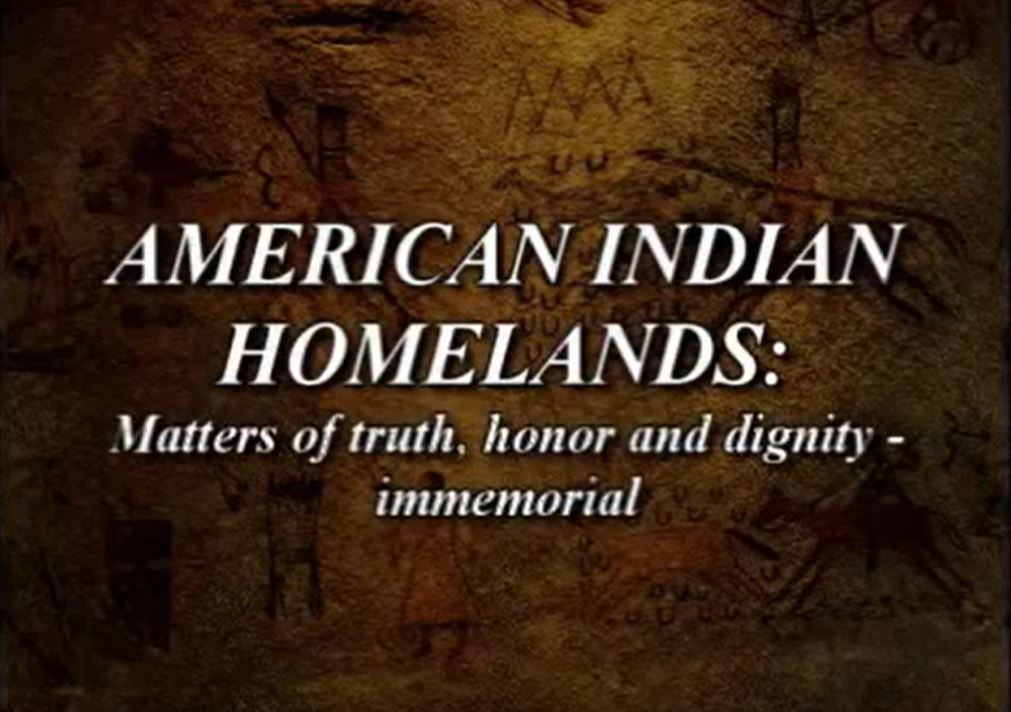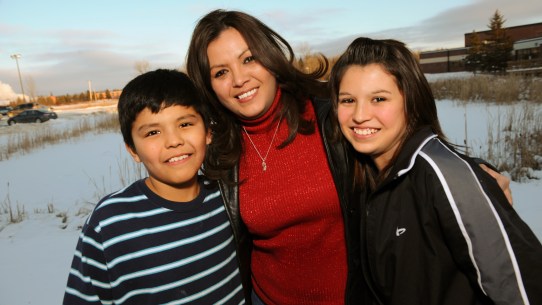November is Native American Heritage Month! Celebrate by watching these documentaries to learn more about the history of Native Americans and current problems they face in America today.
American Indian Homelands powerfully highlights efforts to redress more than a century’s worth of legal and political moves undermining Indian land ownership and sovereignty, going back to the 1887 General Allotment Act; the national fight to recover lost lands is being led by the Twin Cities-based Indian Tenure Land Foundation.
Kind Hearted Woman follows Robin Charboneau, a magnetic 31-year-old Oglala Sioux woman living on the Spirit Lake Reservation in North Dakota. In sharing her story, this documentary will portray the realities of what it means to be a contemporary Native American woman living in two worlds. This two part documentary follows Robin for three years as she struggles to raise her two children, further her education, and heal herself from the wounds of sexual abuse she suffered as a child.
Rumble: The Indians Who Rocked the World brings to light the profound and overlooked influence of Indigenous people on popular music in North America. Focusing on music icons like Link Wray, Jimi Hendrix, Buffy Sainte-Marie, Taboo (The Black Eyed Peas), Charley Patton, Mildred Bailey, Jesse Ed Davis, Robbie Robertson, and Randy Castillo, RUMBLE: The Indians Who Rocked the World shows how these pioneering Native American musicians helped shape the soundtracks of our lives. Renewed attention to this missing chapter in the history of American music led to the publishing of Brian Wright-McLeod’s The Encyclopedia of Native Music, an exhibit at the Smithsonian National Museum of the American Indian, and eventually this documentary.
We Shall Remain: America Through Native Eyes (E77 .W47 2009 DVD) tells the story of when Europeans encountered the Native people when coming to North America. Native peoples valiantly resisted expulsion from their lands and fought the extinction of their culture using all avenues available, including military, legal, and political action, diplomacy, and supplication of the spiritual realm. From the Wampanoags of New England in the 1600s who used their alliance with the English to weaken rival tribes, to the bold new leaders of the 1970s who harnessed the momentum of the civil rights movement to forge a pan-Indian identity. Spanning almost four hundred years, these documentaries tell the story of pivotal moments in U.S. history from the Native American perspective, presenting Native history as an integral part of the American story.
Find these documentaries and more including DVDs available for check out at the Music & Media Collections in room 104A at the OSF Library.
By Nicole Wanttie

